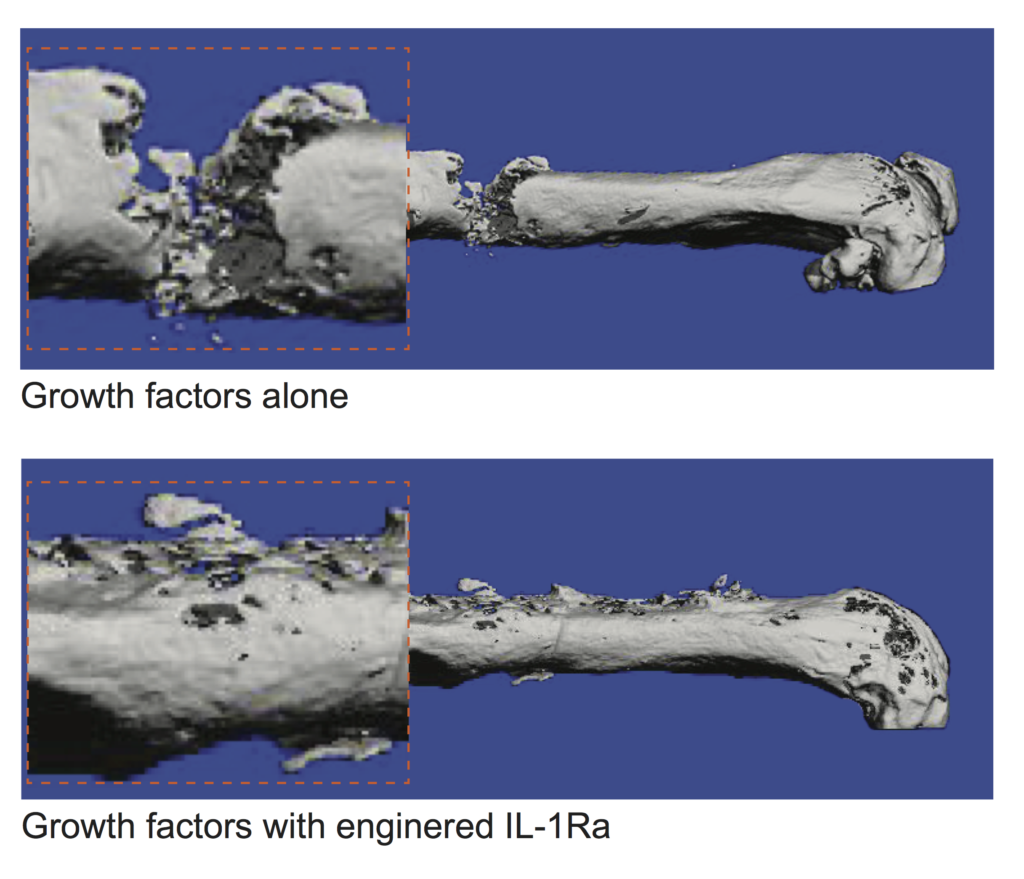ARMI Scientists Working to Improve Regenerative Medicine
New research from ARMI scientists outlines a novel method of enhancing regenerative activity, with clinical implications on improving the effectiveness of growth factors-based therapies.
Recently published in the journal Science Advances, the work was spearheaded by Dr Ziad Julier and Associate Professor Mikaël Martino, in collaboration with researchers from Switzerland and Japan.
The findings explored how proinflammatory signals impact growth factor-mediated regenerative potential. Growth factors have been recognised for their promise in regenerative medicine as they are potent stimulators of a variety of cellular processes, including cell proliferation, migration, and differentiation. Many growth factor-based products have been developed for use in the clinic to treat patients.
However, the use of growth factors in the clinic has been limited thus far. Mikaël explained, “This has been due to several issues, including suboptimal delivery systems. We’ve seen ineffectiveness at low doses and serious side effects at high doses.” He continued, “The key to improving the safety and efficacy, and thereby realising the potential of growth factor-based therapies, is understanding the complex interplay between growth factors, their targets and their environment.”
With this goal in mind, Mikaël, his group and his collaborators sought to delineate the relationship between clinically relevant growth factors and the immune microenvironment. “We know that an immune response almost always accompanies the tissue repair regeneration process, but the impact of the immune system and inflammatory signals on growth factor signalling is a research area that has been overlooked,” said Mikaël.

While exploring bone regeneration in murine models, the research team found that two growth factors, BMP-2 and PDGF-BB, are impaired by interleukin-1 receptor (IL-1R) through several different mechanisms. The team engineered a molecule to locally and sustainably inhibit IL-1R, which was co-delivered with growth factors, inducing superior regeneration.
“This work presents an argument for integrating immunomodulation when designing growth factor-based therapeutic protocols,” commented Mikaël. “By dampening local proinflammatory signalling, we may be able to enhance the efficacy of growth factor therapies.”
More information
Click here to read the publication: Julier, Z., Karami, R., Nayer, B., Lu, Y.Z., Park, A.J., Maruyama, K., Kuhn, G.A., Müller, R., Akira, S. and Martino, M.M., 2020. Enhancing the regenerative effectiveness of growth factors by local inhibition of interleukin-1 receptor signaling. Science Advances, 6(24), p.eaba7602.
The Martino Group combines research in immunology, stem cells, and bioengineering, to understand the molecular and cellular mechanisms governing tissue repair and regeneration. For more information on Associate Professor Mikaël Martino and the Martino Group at ARMI, please visit the Martino Group page. You can contact Mikaël via mikael.martino@monash.edu.
